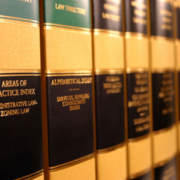Shortly after taking office the Biden administration stopped enforcing 2019 changes in the so-called public charge rule and now the Supreme Court has agreed to a Justice Department request to dismiss an upcoming case challenging that rule.
 The public charge rule, as updated in 2019, calls for all legal immigrants enrolled in Medicaid and certain other safety-net programs to be designated public charges and denied access to permanent U.S. residency and green card status. Hospitals – including private safety-net hospitals and the National Association of Safety-Net Hospitals – feared that the revised rule would have a chilling effect on the willingness of some legal citizens and legal non-citizens to seek out government health care programs for which they legally qualify. This, they feared, could lead to many low-income legal citizens and non-citizens choosing not to seek the care to which they are entitled by law and ignoring serious illnesses and injuries until they become a crisis. This could lead to continuing health problems for such individuals and a potential surge of uncompensated care for the safety-net hospitals to which such individuals turn when their medical conditions absolutely require medical attention – a surge that could jeopardize jobs at those hospitals and access to care in the generally low-income communities safety-net hospitals serve.
The public charge rule, as updated in 2019, calls for all legal immigrants enrolled in Medicaid and certain other safety-net programs to be designated public charges and denied access to permanent U.S. residency and green card status. Hospitals – including private safety-net hospitals and the National Association of Safety-Net Hospitals – feared that the revised rule would have a chilling effect on the willingness of some legal citizens and legal non-citizens to seek out government health care programs for which they legally qualify. This, they feared, could lead to many low-income legal citizens and non-citizens choosing not to seek the care to which they are entitled by law and ignoring serious illnesses and injuries until they become a crisis. This could lead to continuing health problems for such individuals and a potential surge of uncompensated care for the safety-net hospitals to which such individuals turn when their medical conditions absolutely require medical attention – a surge that could jeopardize jobs at those hospitals and access to care in the generally low-income communities safety-net hospitals serve.
Between this action by the Justice Department and the Supreme Court agreement not to hear the case, it appears that the next step will be for the administration, which has already directed its agencies to review such regulations, either to revise or rescind the 2019 changes in the public charge rule.
NASH expressed its opposition to the 2019 changes in the public charge rule on several occasions, including in this letter to the Department of Homeland Security when the changes were proposed and in this 2019 position statement.
Learn more about the public charge rule and recent actions affecting it in the article “Supreme Court agrees to dismiss challenge to Trump public charge rule,” from the online publication The Hill.


